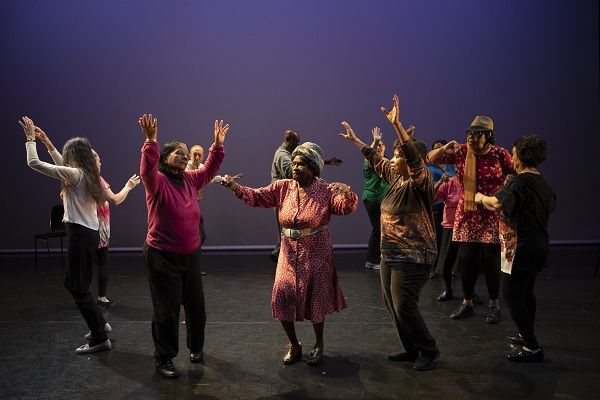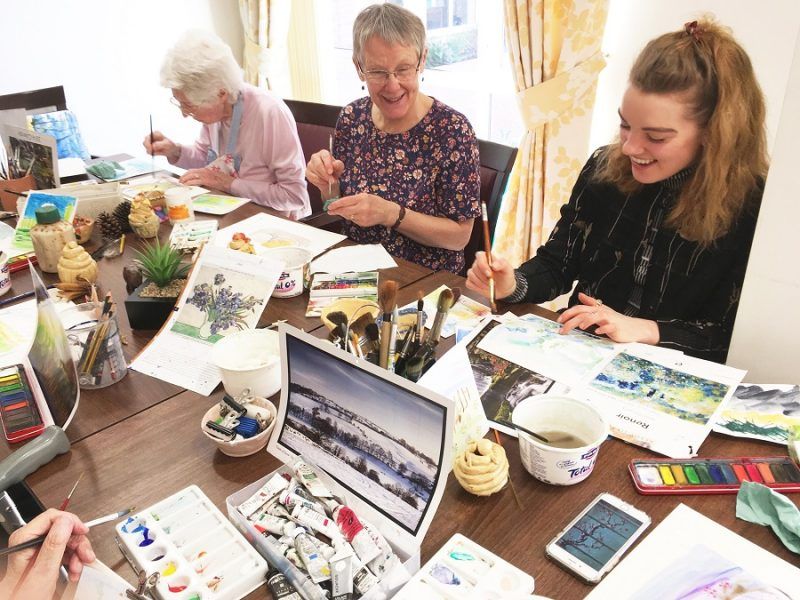For the last ten years and before the field of arts and older people has been developing throughout the UK and internationally. Our reports Ageing Artfully (2009) and Older and Wiser? (2019) bookend a decade of progress for creative ageing, charting the field’s journey from the passion of a few pioneering arts organisations towards a commitment by the majority.
This has put creative ageing practitioners in a strong position to support people most likely to be at risk of contracting the virus with purposeful and pleasurable activity which fills the long hours of social isolation and forms a human connection. The role of the arts in tacking social isolation has been recognised for a long time including by us and the Campaign to End Loneliness, but we never in our worst nightmares did we think it would be so needed. Now creative ageing finds itself in the eye of the storm.

We have been documenting a small part of this magnificent response as it happens. But it is worth saying that this has not happened accidentally but finds its roots in the vibrant tradition of participatory arts in the UK, chronicled by François Matarasso in A Restless Art as well as the powerful movement of creative ageing. The field has been built up with experienced, skilled practitioners alongside resources such as our Treasury of Arts Activities and City Arts Nottingham’s Armchair Gallery that were there ready for this crisis.
The field has been built up with experienced, skilled practitioners.
And it is constantly expanding demonstrated by the recent announcement of a new initiative by the Arts Society and the King Lear Awards, amongst many more.

Also this is a global pandemic, of course, and as we point out in Around the World in 80 Creative Ageing Projects, we are part of an international movement.
It seems hard to believe writing at the beginning of April, but COVID-19 will end and pass into a grim history of pandemics. There will be so many effects from this crisis that what comes next is hard to foresee. There will certainly be economic misery and it looks as if the arts sector will be especially badly hit. The efforts of many funders, especially the Arts Council England, to mitigate this have been timely and impressive.
In what comes next, I hope that the role of creative ageing in this crisis will be remembered and valued. The response has been so effective because organisational and professional experience have been developed over years which will need continued support in tougher times for the arts than any of us has ever seen. We know that creative ageing is not just relevant for our current terrible circumstances but for the positive reason that our society will continue to age.
I hope that the role of creative ageing in this crisis will be remembered and valued.
Each nation of the UK will need to find funding for this work among many competing priorities. The case for that support is more evident than ever.